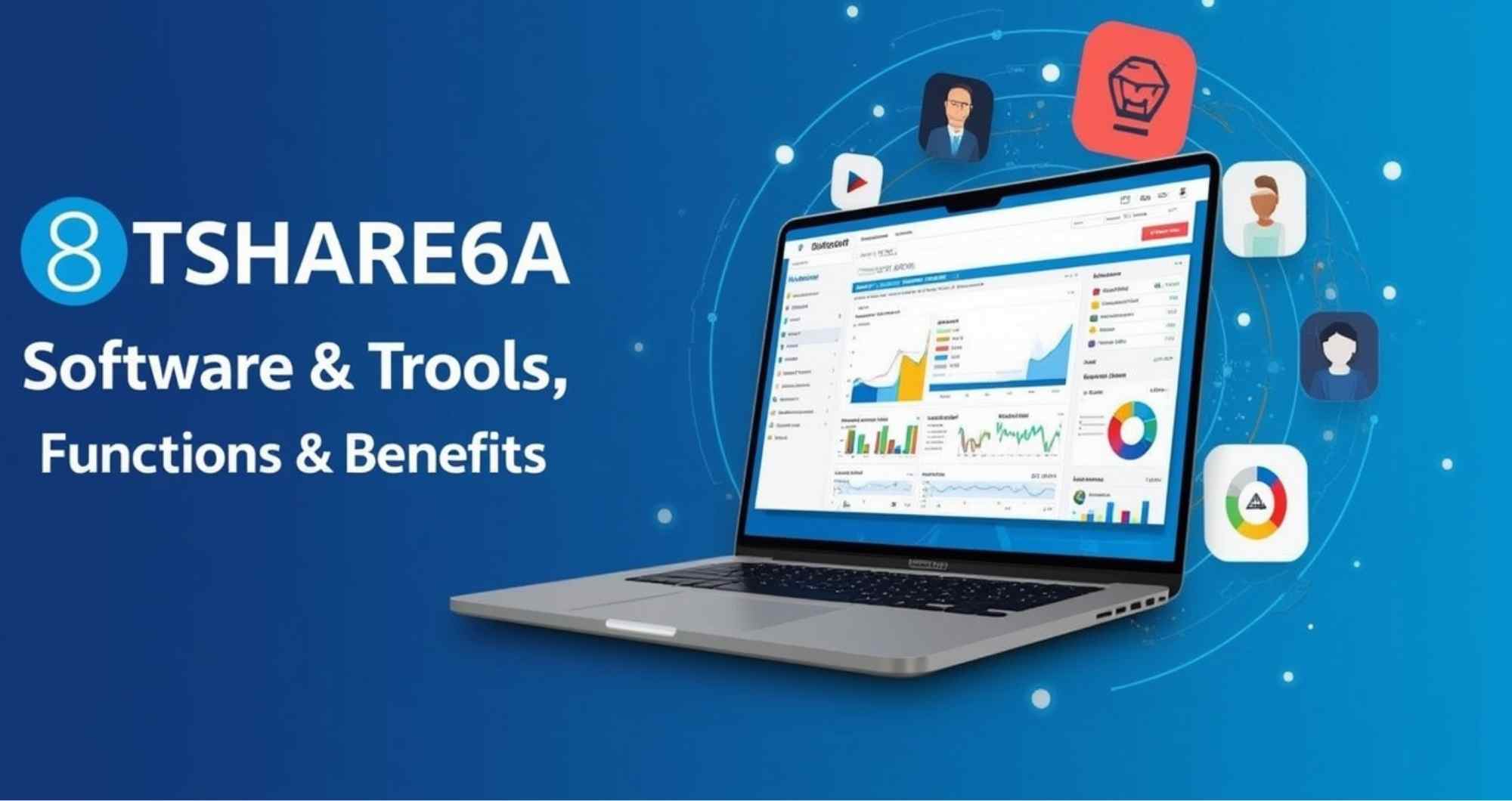In today’s fast-paced business environment, the right tools can make all the difference between stagnation and growth. One such tool that has gained immense popularity is Enterprise Resource Planning (ERP) systems.
But what exactly is ERP? It’s more than just software; it’s a comprehensive solution designed to integrate various functions within an organization.
From finance and human resources to supply chain management, ERP provides a centralized platform for data management.
As companies strive for efficiency and competitiveness, understanding how to leverage ERP effectively becomes crucial. That’s why resources like https://noticviralweb.blogspot.com/2024/04/consejos-erp-empresa.html are invaluable—they offer actionable ERP tips to help businesses grow smarter and faster.
What is ERP? Key Concepts for Business Success
Enterprise Resource Planning (ERP) is a type of software that organizations use to manage their day-to-day activities.
It integrates various business processes into one cohesive system, streamlining operations and enhancing data accuracy.
At its core, ERP facilitates the flow of information across departments. This means that sales, finance, human resources, and manufacturing can all access real-time data.
By breaking down silos within an organization, teams can collaborate more effectively.
One key concept of ERP is automation. Routine tasks like payroll processing or inventory management can be automated through the system.
This not only saves time but also reduces human error, leading to better decision-making.
Another important aspect is scalability. Modern businesses often experience fluctuations in demand and growth phases.
A robust ERP system allows companies to adapt by adding modules tailored for specific needs without overhauling existing infrastructure.
Data analysis capabilities are another significant benefit of ERP systems. They provide insights into operational performance and financial health through detailed reporting tools.
Businesses can make informed decisions based on accurate metrics rather than guesswork.
Compliance management forms an essential part of many ERP solutions. With regulations constantly changing across industries, having an integrated approach ensures that your company adheres to legal requirements while minimizing risks associated with non-compliance.
Why ERP Tips for Business Success Matter
Enterprise Resource Planning (ERP) systems are vital for any business aiming to streamline operations and enhance productivity.
They integrate various functions into a single system, ensuring that information flows seamlessly across departments. This integration is where ERP tips come into play.
Understanding why these tips matter can make a significant difference in how effectively your organization uses its ERP system.
Well-implemented ERP strategies lead to improved accuracy in data management, which ultimately supports better decision-making processes.
When employees have access to real-time data, they can respond quickly to changes and challenges.
Moreover, effective use of an ERP system helps eliminate redundancy. By centralizing information storage and workflows, businesses reduce the chances of errors caused by inconsistent data entries across different departments.
This not only saves time but also fosters collaboration among teams.
When companies focus on implementing best practices through ERP tips, they often see enhanced customer satisfaction as well.
With integrated systems capable of tracking orders and inventory levels accurately, it’s easier to meet customer needs promptly.
Additionally, adopting these methods prepares businesses for future growth. As organizations expand or evolve their services/products, scalable ERP solutions facilitate this transition without major overhauls or disruptions.
Investing time in understanding and applying pertinent ERP tips ensures that your company maximizes its potential benefits from the software while minimizing costly mistakes during implementation phases.
How to Choose the Right ERP System for Your Company
Choosing the right ERP system for your company is a critical decision that can significantly impact your operations. Start by assessing your specific business needs.
Identify the core processes you want to streamline, such as finance, inventory management, or customer relations. This will help narrow down your options.
Next, consider scalability. Your chosen ERP should grow with your company. Look for systems that offer modular functionalities so you can add features over time without needing a complete overhaul.
This flexibility can save costs and ensure longevity.
Cost is another important factor. Evaluate not just the initial investment but also ongoing expenses like maintenance and training fees.
A more expensive solution may offer better long-term value if it enhances productivity and reduces operational inefficiencies.
User-friendliness cannot be overlooked either. Involving key stakeholders in the selection process ensures their buy-in and helps identify preferences regarding interface design and usability features.
A system that’s intuitive will reduce training time and improve adoption rates among staff.
Integration capabilities are essential when choosing an ERP system too. Ensure that it can connect seamlessly with existing software applications to avoid disruptions during implementation.
Investigate vendor support services thoroughly before making a decision. Reliable customer support is vital for addressing issues swiftly post-implementation, ensuring minimal downtime for your operations throughout the transition period.
Essential ERP Tips for Business Success in Implementation
Implementing an ERP system can be a game-changer for your business, but it requires careful planning. Start by establishing clear goals.
Determine what you want to achieve with the new system. This clarity will guide your decisions and help measure success later on.
Next, involve key stakeholders early in the process. Engaging employees from different departments ensures their needs are met and fosters buy-in across the organization. Their input is invaluable as they understand day-to-day operations best.
Training is another critical aspect of implementation. Invest time in educating your team about how to use the ERP software effectively.
Providing comprehensive training helps reduce resistance and improves user adoption rates significantly.
Data migration should not be overlooked either. Ensure that existing data is cleaned up before transferring it into the new system. Accurate data entry is crucial for maintaining integrity within your ERP solution.
Additionally, consider phased implementation rather than a full rollout at once. Starting small allows you to troubleshoot issues without overwhelming your staff or resources all at once.
Prioritize ongoing support after launch. Regular check-ins with users can address challenges as they arise and ensure everyone feels confident using the new system over time.
Common Challenges and Solutions in ERP Adoption
Adopting an ERP system can present various challenges that businesses must navigate. One common issue is resistance to change among employees.
Many team members may feel comfortable with existing processes and fear the unknown associated with a new system. To tackle this, it’s essential to involve staff early in the process and provide comprehensive training.
Another frequent challenge is data migration. Companies often struggle with transferring vast amounts of data from legacy systems to the new ERP platform, leading to potential inaccuracies or losses.
Developing a clear data strategy can help mitigate these risks, ensuring that all information is correctly formatted and validated before migration.
Customization needs can also pose hurdles during ERP adoption. While it’s tempting to tailor systems extensively, excessive customization can complicate upgrades and increase costs down the line.
Businesses should focus on core functionalities first before considering any custom features that truly add value.
Integration issues are another area where companies face difficulties. Ensuring that the selected ERP system works seamlessly with other software applications is critical for smooth operations.
It’s advisable to choose solutions known for their integration capabilities or seek expert advice when planning integrations.
Budget overruns often occur due to unforeseen expenses during implementation phases such as additional training sessions or required hardware updates.
Setting aside contingency funds at the outset helps accommodate unexpected financial demands without derailing project timelines.
Lack of ongoing support post-implementation creates gaps in user experience and optimization efforts over time. Establishing a dedicated support team ensures continuous assistance for users while tracking performance metrics allows businesses to make necessary adjustments promptly.
Benefits of Following ERP Tips for Business Success
Implementing ERP tips can significantly enhance your business operations. One of the primary benefits is improved efficiency. By streamlining processes and integrating data across departments, employees can work more effectively without redundant tasks.
Another advantage is better decision-making. With real-time access to accurate data, managers can analyze trends and make informed choices. This capability fosters agility in responding to market changes or internal challenges.
Cost reduction also plays a vital role in the success of an ERP system. Efficient resource management minimizes waste and optimizes spending on materials, labor, and time. Businesses often see a decrease in operational costs after implementing effective ERP strategies.
Enhanced collaboration among teams is another benefit worth noting. An integrated system breaks down silos between departments, promoting teamwork and information sharing. When everyone works from a single source of truth, communication improves dramatically.
Customer satisfaction typically sees an uptick as well. Streamlined processes mean faster order fulfillment and improved service delivery. Happy customers are likely to return and recommend your business to others.
Adopting these tips helps future-proof your organization by making it adaptable to technological advancements or shifts within the industry landscape.
Companies that stay ahead in utilizing their ERP systems position themselves for long-term growth and stability.
Measuring the Impact of ERP on Your Business Growth
Measuring the impact of ERP on business growth can be a complex but essential task. The right metrics will help you gauge how effectively your ERP system supports your company’s goals.
Start by identifying key performance indicators (KPIs) relevant to your industry and specific objectives.
One common KPI is operational efficiency. This measures how well resources are utilized post-ERP implementation.
An increase in productivity often correlates with streamlined processes enabled by the software, leading to reduced operational costs.
Another important metric is customer satisfaction. By utilizing ERP data, companies can better understand customer needs and preferences.
Tracking changes in customer feedback or repeat purchase rates can highlight improvements in service delivery influenced by efficient resource management.
Financial performance also plays a crucial role in measuring ERP impact. Metrics such as revenue growth, profit margins, and cash flow should be monitored closely after implementation.
A robust ERP system allows for real-time financial reporting that aids decision-making and strategic planning.
Employee engagement is another area worth assessing. Changes in staff morale or turnover rates may indicate whether employees find value in their daily operations due to enhanced systems integration offered by the ERP solution.
Consider scalability as an indicator of long-term success with your chosen ERP platform. As businesses grow, so do their needs.
An effective system should support new initiatives without significant disruption or additional costs arising from switching solutions again.
Future Trends in ERP Systems for Business Success
As businesses continue to evolve, so too will the landscape of ERP systems. The future holds exciting trends that are set to redefine how organizations leverage these tools for growth and efficiency.
One significant trend is the rise of cloud-based ERP solutions. Companies are increasingly shifting from on-premise systems to cloud platforms.
This transition offers greater flexibility, scalability, and cost-effectiveness. With cloud ERP, businesses can access real-time data anywhere, which enhances decision-making processes.
Another emerging trend is the integration of artificial intelligence (AI) and machine learning into ERP systems.
These technologies enable predictive analytics that can forecast market trends and customer behavior more accurately than ever before.
By harnessing AI capabilities, companies can optimize their operations and improve customer experiences.
Additionally, mobile accessibility is becoming a standard feature in modern ERP solutions. Business leaders require instant access to critical data at any time or place.
Mobile-friendly interfaces empower teams to make swift decisions on-the-go.
The Internet of Things (IoT) also plays a role in the future of ERP systems. As devices become interconnected, they generate vast amounts of data that can be integrated into ERPs for enhanced visibility across operations.
User experience design will continue to gain importance within ERPs. A focus on intuitive interfaces ensures ease of use for employees at all levels, fostering higher adoption rates and engagement with the system.
These trends indicate an exciting trajectory for ERP technology as it becomes even more integral in driving business success while improving operational efficiencies across various industries.




